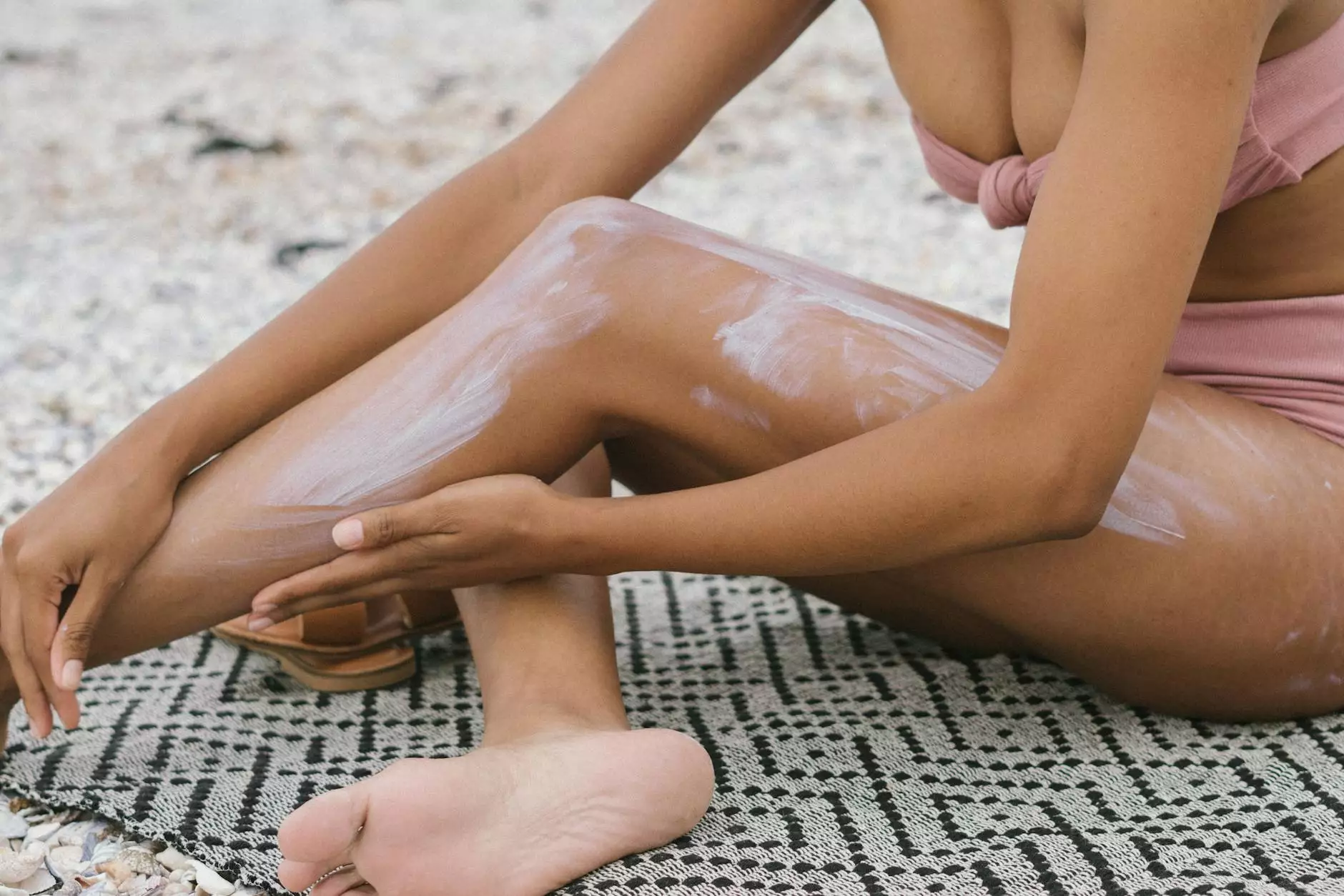Sunscreen Allergy: Protecting Your Skin from the Sun

Introduction
Welcome to Simply Sunscreen, your go-to source for all things related to skin care and beauty. In this article, we will discuss the topic of sunscreen allergy and provide you with valuable information on how to protect your skin from the harmful effects of the sun.
The Importance of Sunscreen
With the increasing awareness of skin cancer and other skin-related issues, the importance of sunscreen cannot be stressed enough. Sunscreen acts as a protective barrier between your skin and the damaging ultraviolet (UV) rays of the sun. It helps prevent sunburn, premature aging, and reduces the risk of skin cancer.
Understanding Sunscreen Allergy
Unfortunately, some individuals may experience an allergic reaction to certain sunscreen products. Sunscreen allergy is a relatively rare condition, but it can cause discomfort and skin irritations in sensitive individuals. If you notice redness, itching, or a rash after applying sunscreen, you may be allergic to certain ingredients commonly found in sunscreens.
Identifying Allergenic Ingredients
Common allergenic ingredients in sunscreens include avobenzone, oxybenzone, octinoxate, and homosalate. It's important to read the product labels carefully and avoid using sunscreens containing these ingredients if you have known allergies. Look for alternative sunscreen formulas that are hypoallergenic, fragrance-free, and specially formulated for sensitive skin.
Tips for Sunscreen Application
Proper application of sunscreen is crucial to ensure maximum protection. Here are some useful tips:
- Apply sunscreen generously to all exposed areas of the skin
- Reapply every two hours, or more frequently if you are swimming or sweating
- Use sunscreen even on cloudy or overcast days, as UV rays can still penetrate through the clouds
Choosing the Right Sunscreen
When selecting a sunscreen, it's important to consider your specific skin type, lifestyle, and personal preferences. Here are a few factors to keep in mind:
- SPF: Look for a broad-spectrum sunscreen with at least SPF 30 to effectively protect against both UVA and UVB rays.
- Formulation: Choose between lotions, creams, gels, or sprays based on your preference and skin type.
- Water Resistance: If you plan on swimming or participating in outdoor activities, opt for a water-resistant sunscreen.
Other Protective Measures
In addition to using sunscreen, it's important to adopt other protective measures to safeguard your skin from the sun. These include:
Seeking Shade
When the sun is at its strongest (usually between 10 a.m. and 4 p.m.), seek shade under an umbrella, tree, or other sheltered areas. Limit your sun exposure during these peak hours to reduce the risk of sunburn.
Wearing Protective Clothing
Wear loose-fitting, long-sleeved shirts, wide-brimmed hats, and sunglasses with UV protection to shield your skin and eyes from direct sunlight.
Staying Hydrated
Drinking plenty of water helps keep your skin hydrated and reduces the risk of dehydration, particularly when spending extended periods outdoors.
Conclusion
Protecting your skin from the harmful effects of the sun is of utmost importance. By understanding sunscreen allergy, choosing the right sunscreen, and adopting additional protective measures, you can enjoy the outdoors while keeping your skin healthy and radiant. Visit SimplySunscreen.com for more information on the best skin care products and tips for maintaining beautiful skin.



